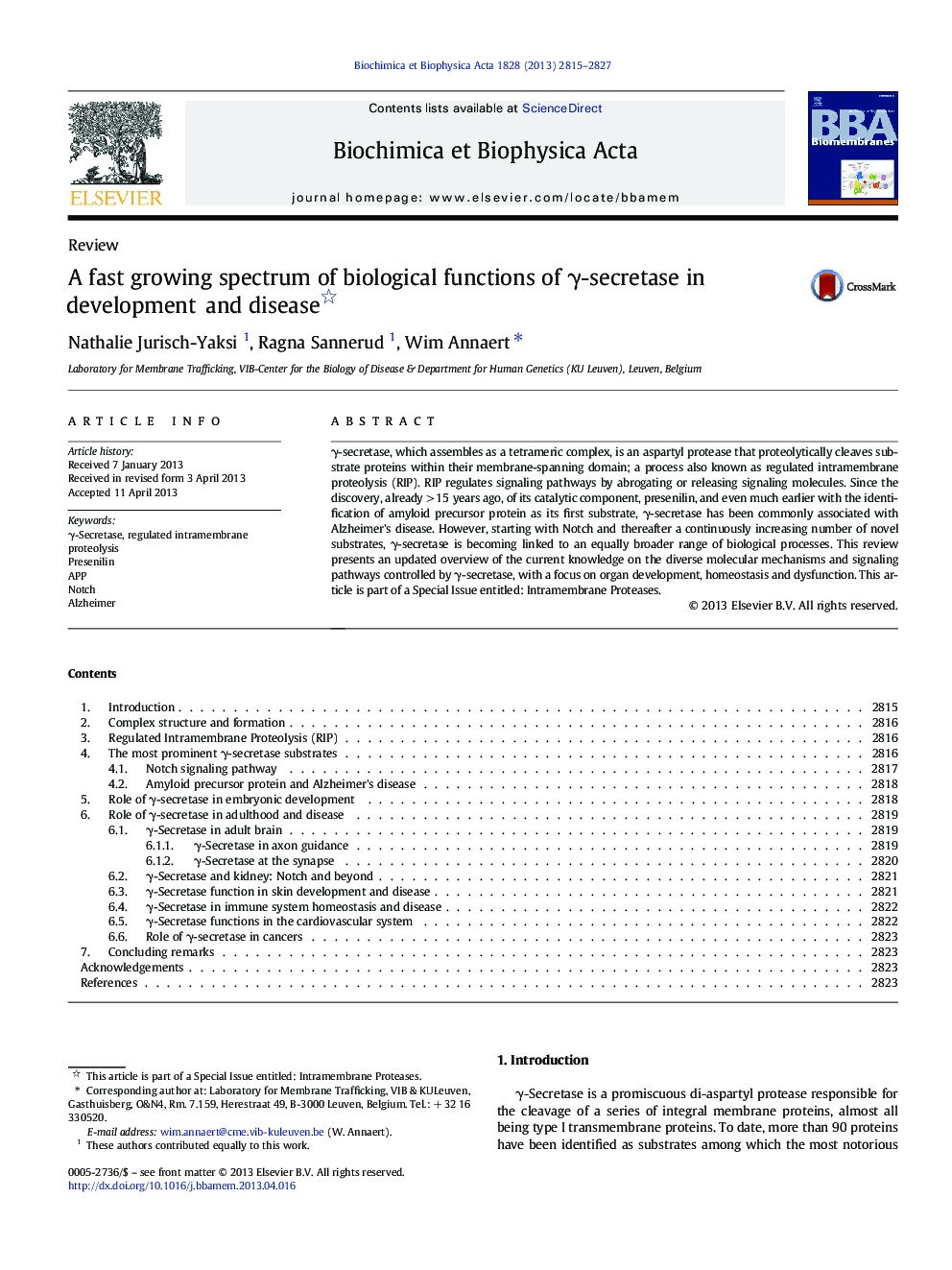| Article ID | Journal | Published Year | Pages | File Type |
|---|---|---|---|---|
| 1944242 | Biochimica et Biophysica Acta (BBA) - Biomembranes | 2013 | 13 Pages |
•γ‐Secretase is critically involved in an increasing number of signaling pathways.•Mutations in γ‐secretase substrates are linked to human disease, including cancer.•γ‐Secretase activity is critical for normal embryonic development.•γ‐Secretase mutations result in several human diseases, besides Alzheimer's disease.
γ-secretase, which assembles as a tetrameric complex, is an aspartyl protease that proteolytically cleaves substrate proteins within their membrane-spanning domain; a process also known as regulated intramembrane proteolysis (RIP). RIP regulates signaling pathways by abrogating or releasing signaling molecules. Since the discovery, already > 15 years ago, of its catalytic component, presenilin, and even much earlier with the identification of amyloid precursor protein as its first substrate, γ-secretase has been commonly associated with Alzheimer's disease. However, starting with Notch and thereafter a continuously increasing number of novel substrates, γ-secretase is becoming linked to an equally broader range of biological processes. This review presents an updated overview of the current knowledge on the diverse molecular mechanisms and signaling pathways controlled by γ-secretase, with a focus on organ development, homeostasis and dysfunction. This article is part of a Special Issue entitled: Intramembrane Proteases.
Graphical abstractFigure optionsDownload full-size imageDownload high-quality image (164 K)Download as PowerPoint slide
